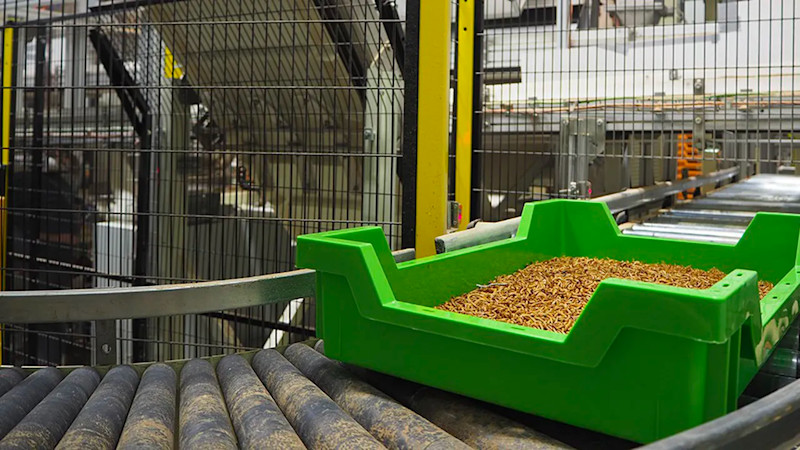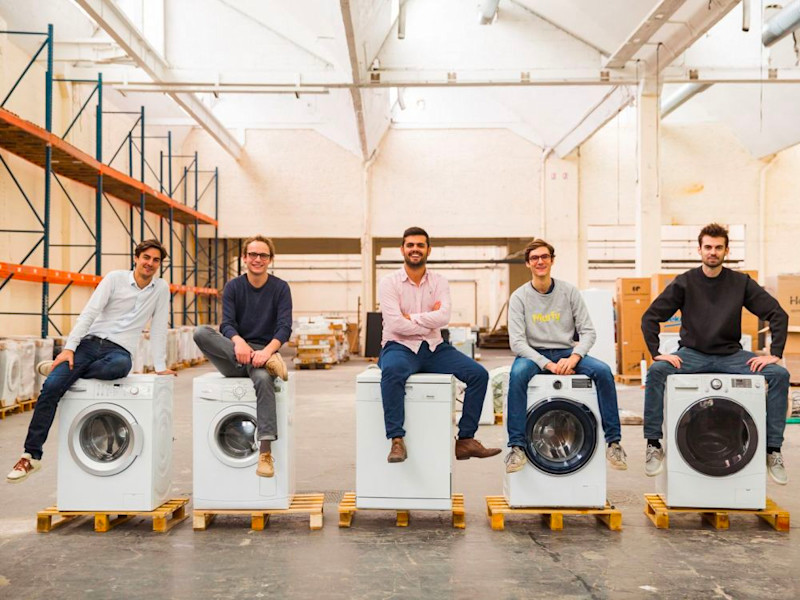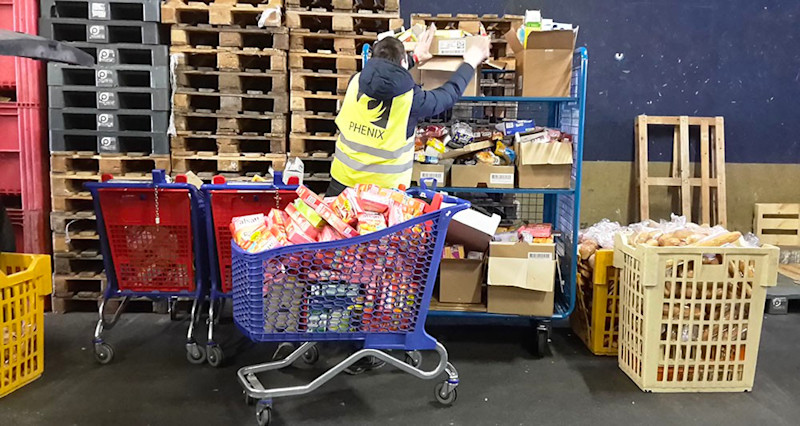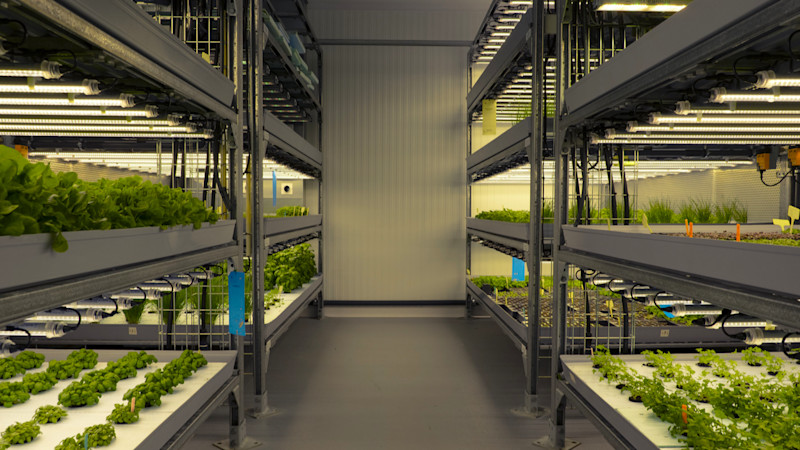- Iterate
- Meet The Team
- Five French Startups Fighting for Sustainability
Five French Startups Fighting for Sustainability
Table of contents
Climate tech investment has grown at five times the venture capital market rate over the past seven years. The Org rounded up five French startups tackling urgent environmental issues that have successively proved it’s possible to make money while protecting the environment.

The COVID-19 pandemic has been grabbing the headlines for the past year, but the pressing challenges of climate change still remain. In the words of Swedish environmental activist Greta Thunberg, we should “start treating the crisis like a crisis.”
France was recently condemned by the Paris Administrative Court for not doing enough to prevent global warming. With only a -0.9% in reduction of greenhouse gas emissions between 2018 and 2019, the country is far from the -2.3% the government originally promised. Consequently, France is unlikely to reach carbon neutrality by 2050.
While global governments have held many worldwide meetings to try and come to common agreements, private investors have also poured money into startups tackling environmental issues. According to PWC, climate tech investment has grown at five times the venture capital market rate over the past seven years. More precisely, between 2013 and 2019, some $60B of early-stage capital has been invested globally into climate tech startups. France is no exception to this trend. In 2018, 1.2B€ ($1.4B) was invested in cleantech startups, and overall, more than 4B€ ($4.8B) has been invested between 2012 and 2018.
The Org rounded up five French startups tackling urgent environmental issues — from pollution to sustainable agriculture to planned obsolescence — that have successively proved it’s possible to make money while protecting the environment.
Ynsect

Co-founders Alexis Angot, Antoine Hubert, Fabrice Berro, and Jean-Gabriel Levon are on a mission to make insect-based proteins ubiquitous.
Ynsect, founded in 2011, has set up insect farming facilities to grow species whose protein can be used for various applications, such as fish and animal food or fertilizer. The revenue opportunities are major since the animal feedstock and fertilizer markets represent a combined global market of $800B.
Built with automation and sensing technologies taken from other industries like automotive manufacturing, the company’s farming structure allows the cultivation of mealworms at scale with reduced costs, high efficiencies, and a low footprint on the environment. The team also manages the extraction process to produce protein and fertilizer products suitable to replace animal proteins consumed by fish and livestock, by pets, or as agricultural inputs.
Since its inception, the company had to raise several rounds of funding to progressively prove the feasibility of its R&D-intensive technology. The first round was used to internalize R&D after the team collaborated with public labs and to build a production pilot. The company went on to build a demonstrator and factory units and by 2019, had protected its technology through 25 patents and was poised to reach more than $70M in annual revenue.
To date, Ynsect has raised $425M in funding from various investors from all around the world, such as Upfront Ventures (U.S.), Demeter (France), Tallis Capital (UK), as well as FootPrint Coalition (U.S.), an investment group founded by actor Robert Downey Jr. to support sustainable businesses.
The company announced the acquisition this week of Protifarm, an insect farming company based in the Netherlands for an undisclosed amount. Protifarm brings 40 years of experience in the field, operates a facility with a 1,000-ton production capacity, and has created the world's first food ingredient line made from insects. Ynsect is now ready to enter the insect-based human food space.
Murfy

Founded in 2018, Murfy offers free tutorials to fix home appliances like dishwashers and refrigerators, as well as home repair services.
Now widely known and acknowledged, planned obsolescence has been the source of harsh criticism towards large corporations, especially to those manufacturing electronic devices. Indeed, it has never been harder than it is today to fix a broken device. Either brands don’t offer repair services, it's impossible to buy the faulting piece, or the product has just not been designed to be fixed. Consequently, it's often simpler and cheaper to buy a new device than to fix a broken one. The implications are serious: according to Murfy founder Guy Pezaku, 28 million devices break down every year in France and only 5 million of them are fixed by some 5,000 active repairmen.
Murfy wants to offer stellar services and therefore has decided to train and hire a new generation of world-class repairmen as full-time employees. This is a big step toward a more sustainable marketplace, as the five founders - Adrien Agnel, Benjamin Blanchard, Jérémy Lévêque, Romain Martin and Guy Pezaku - were doing repairs themselves in the early days of the startup.
The business model is straightforward: Each appointment costs 85€ ($102) no matter the repair, then clients add the price of the spare parts used. If the device can't be fixed (a case that happens only 3% of the time, according to the company), Murfy can propose a second-hand device at a discounted price and with a credit for the amount of the appointment.
Since its launch, Murfy has completed more than 38,000 repairs and was forecasted to reach 3.5M€ ($4.2M) in annual revenue in 2020. This year it’s expected to reach 12M€ ($14.3M).
While the business has been profitable, the 85-people team raised an 8M€-round ($9.9M) in October 2020 in order to be able to cover up to 75% of French households, compared to the current 50%. It also plans on launching in Spain in mid-2021 and to hire some additional 200 repairmen.
Phenix

In France, food waste represents 10 million tons, a total value of 16B€ ($19B).
In 2014, Baptiste Corval and Jean Moreau co-founded Phenix to fight food waste by educating companies, collectivities, and associations in their transition to a circular economy. To do so, the startup offers solutions to reduce waste as well as to valorize it. Using food products as an example, Phenix plays the role of an intermediary between retail chains that need to handle products about to perish and associations who could use that waste to offer free meals.
To foster its anti-waste movement and business, Phenix also launched a mobile app in January 2019 for consumers to buy unsold stocks at discounted prices. As of today, 6,000 businesses and more than 1.5M people use the platform. In 2020, the company saved the equivalent of 44M meals, representing almost 120,000 meals or 60 tons of food per day.
In November 2018, the startup raised a 15M€-round ($18M) from Arkea Capital and BPI France. Operating in France, Spain, Portugal, Italy, and Belgium, the team is currently testing the market in Hong Kong before future expansion into Asia.
Karos
With a ride-sharing app focused on commuting, Karos wants to reduce the number of people going to work alone by car. Its carpooling platform matches drivers and riders and enables them to split the costs of owning a car and to share a moment of conviviality, while also reducing traffic jams and pollution. The business model is like any ride-sharing service: The rider pays the ride through the app, the driver gets paid, and Karos gets a commission on the transaction.
Founded in 2014 by Olivier Binet and Tristan Croiset, the company now counts over 400,000 active users and more than 150 corporate and public clients. The company announced last March a new capital injection of 7M€ ($8.4M) from various investors, including the fund of the European Commission.
While the Covid outbreak and sanitary rules are making people less inclined to go to work, and even more to carpool, Karos is currently working to get ready to face a growing surge in demand for September 2021.
Jungle

Jungle is one of the latest French startups to launch in the vertical farming space. Founded in 2016 by CEO Nicolas Seguy and President Gilles Dreyfus, the company originally developed a small version of its pioneering indoor agricultural space in Portugal. Installed outside of a large retail store, the demo unit was built to prove that the team could successively produce salads, herbs, and microgreens (e.g. radishes, Thai basil, coriander, lettuce) in a controlled environment.
The applications and business opportunities for this are plentiful. The food industry alone could represent 80% of Jungle's business, but the team also targets the perfume, pharmaceutical, and cosmetics industries, which often use expensive or rare plant-based molecules in their solutions. Indeed, the growing concerns from consumers and healthcare institutions about agricultural pesticides as well as dangerous additives in formulations have obliged leading companies to better source their products. New regulations also constantly require them to adapt and find alternatives or substitutes.
Fast-forward a few years and Jungle is now growing plants in its first farming warehouse, located in Château-Thierry, a city nearby Paris known for its medieval ruins. Still under construction, the facility is planned to be fully operational by the end of 2021, and will house a cultivable surface of 5,500 square meters thanks to a scheme of vertical shelves.
At Jungle, salads, flowers, and aromatic herbs are installed in a complex and automated hydroponic system. Immersed in water, the roots of the plants receive the right amount of nutrients through a specific distilled substrate, as well as the optimal light through LEDs. Everything is precisely controlled, from the water power to the temperature and the air circulation, in order to optimize the plants’ growth.
Because of that, this system enables Jungle to get better yields in addition to not requiring pesticides or herbicides. According to Seguy, the team is able to grow basil to fruition 14 times, whereas traditional producers in Italy or the South of France, two regions reputed for the herb, can only do it three or four times.
In 2020, Jungle produced 50,000 plants, and the startup forecasts to produce 10M of them in 2022. Some of the food products of Jungle can already be bought in Monoprix and Intermarché, two major retail chains in France. The team is also working on new crops, including cherry tomatoes and mushrooms, to be in supermarkets by 2023.
The 25-employee company has raised 42M€ ($50.3M) to date from Founders Future and Demeter Partners in March 2021, and plans on using the new funding to double its workforce by 2022.
--
The Org is a professional community where transparent companies can show off their team to the world. Join your company here to add yourself to the org chart!

